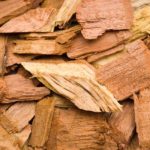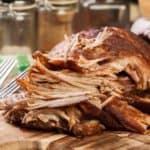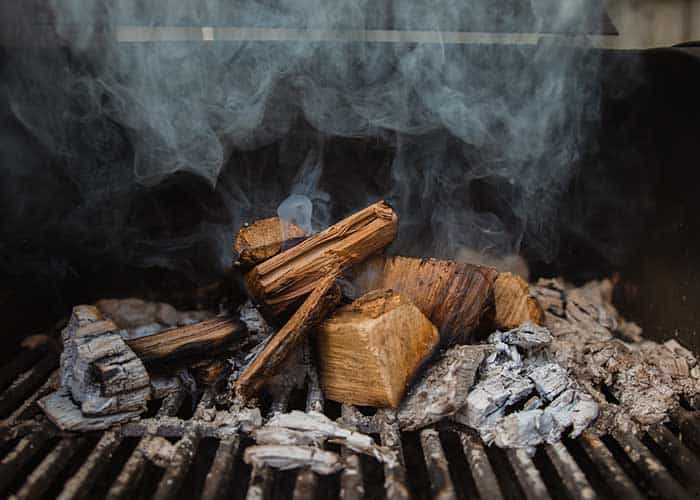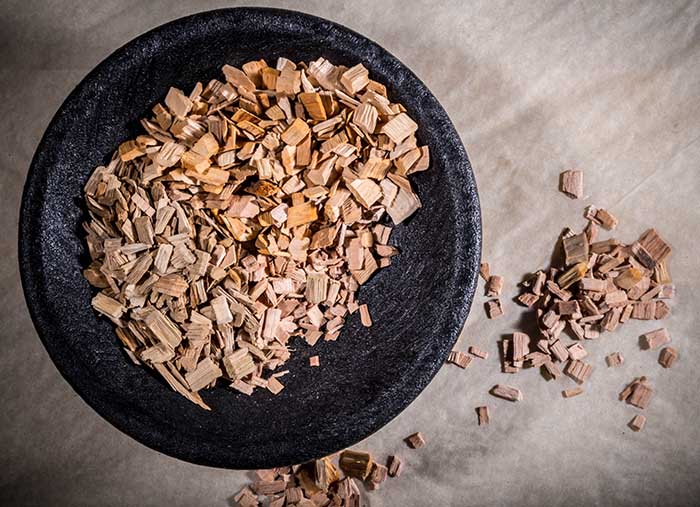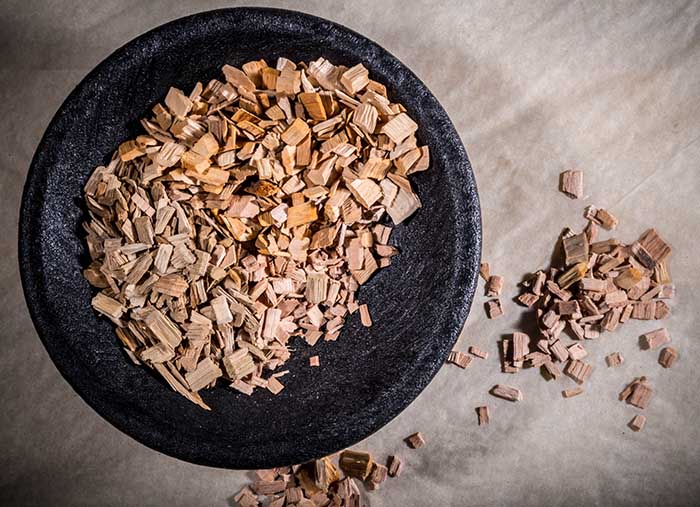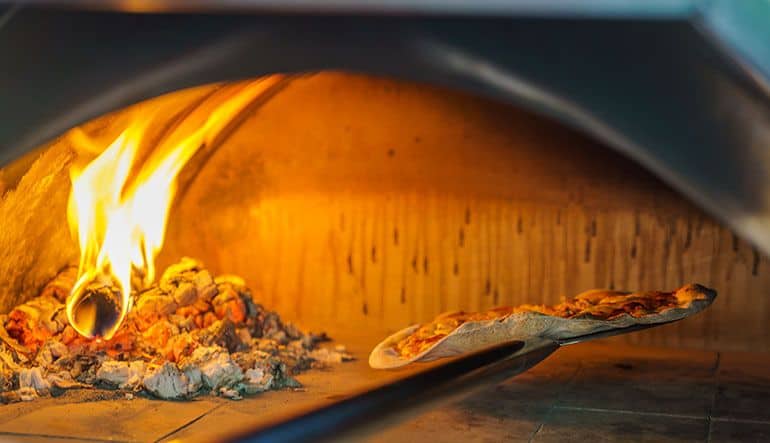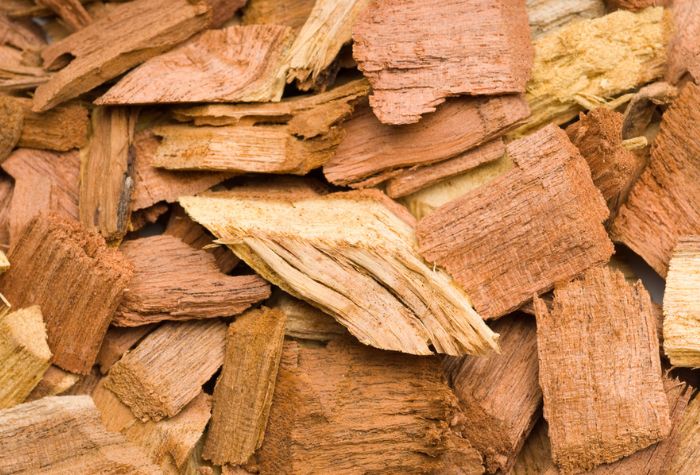Learn about mulberry wood for smoking, including its characteristics, how to use it for barbecue, plus the best meats to smoke with it.
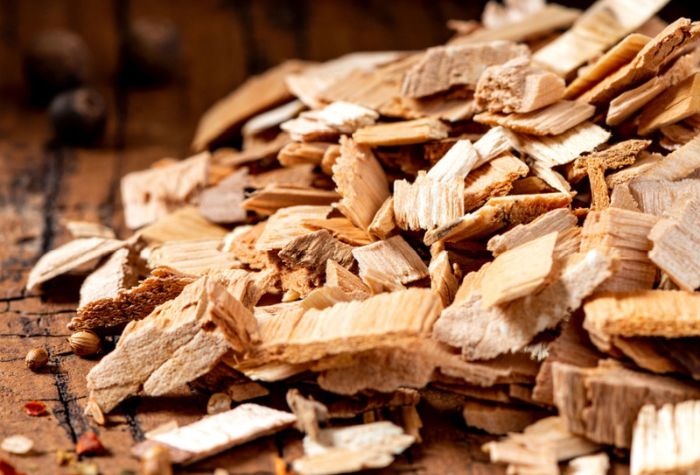
If you’ve ever enjoyed a slice or two of applewood smoked bacon, you know how the sweet smoke of a fruit tree can really transform a piece of meat.
One of the joys of smoking your own meat is discovering which woods and wood blends impart the perfect flavor. And to really do this, you sometimes need to venture off the beaten path.
That adventure might just lead you to an unlikely source of memorable flavor: the mulberry tree. Is mulberry wood good for smoking? Let’s find out.
What is Mulberry Wood?
Mulberry wood comes from trees of the Morus genus. These trees can be found in many temperate regions of the world. Mulberry trees produce berries that taste sweet and look a bit like elongated blackberries. But strangely enough, they aren’t closely related to raspberry or blackberry plants.
Mulberry trees aren’t only known for their berries. Mulberry wood is hard and strong and often used to make high-end furniture in Japan. It’s also great for making fenceposts and baskets.
Mulberry Wood Characteristics
Like the wood of other types of fruit trees, mulberry wood imparts a subtle, mildly sweet, somewhat fruity taste to smoked meat.
Some people say that it also has a slight earthiness to it, so you don’t have to worry about it making meat taste overly sweet. It’s a great choice if you want to add unique flavor while still letting the taste of the meat shine through.
Mulberry might have a somewhat mild flavor profile, but that doesn’t mean it’s bland. It has the advantage of burning at a lower temperature than most other hardwoods while still producing ample smoke for barbecue. When you slow-smoke with mulberry, you’ll get absolutely mouthwatering meats!
How to Use Mulberry Wood
If you want to use mulberry wood for smoking, you must first ensure you have the right type. The distinctive, sweet smoke flavor comes from female mulberry trees – the only mulberry trees that actually bear fruit.
There are actually three sexes of mulberry trees: dioecious female (produces fruit and female flowers), dioecious male (produces pollen and male flowers), and monoecious (produces male and female flowers).
You only need to keep this in mind if you’re cutting your own mulberry wood for smoking. If you’re buying chips or pellets, they’ll be made from female mulberry trees.
If you do cut your own wood for smoking, you need to ensure it’s adequately seasoned before burning it. Mulberry usually takes about 6-12 months to season.
Why is this important? Seasoned wood burns hotter and has an even heat distribution. If you try to smoke meat with freshly cut mulberry, you’ll be disappointed – the sap and moisture in newly cut wood will give your meat a bitter, unpleasant flavor.
Best Meats to Smoke with Mulberry Wood
There’s no ‘wrong’ meat to smoke with mulberry; if you have an adventurous palate, you might want to try them all! However, most think lighter meats like poultry, pork, and fish do especially well when smoked with mulberry.
Think of it this way – if it’s a meat that’s often served with some kind of fruit glaze or topping, it should work perfectly with mulberry. Ever had Thanksgiving turkey served with cranberry sauce? The sweetness of the cranberry pairs nicely with poultry, but you probably wouldn’t slather it on a burger.
Poultry is an obvious choice, but mulberry is also great for smoking pork. Pork works beautifully with grilled peaches, fruit chutneys, and sweet glazes, so mulberry’s light, fruity flavor is perfect. In a similar vein, mulberry wood is also great for smoking salmon and other types of fish.
Some people even use mulberry wood to smoke beef and other types of red meat. This isn’t quite as common, as darker, heavier meats tend to need hickory, mesquite, or another stronger wood. But if you want to give smoked red meat a lighter flavor, mulberry (alone or as part of a blend) is worth a shot.
If you’re a discerning pitmaster (or aspire to be one), you might just find that mulberry wood gives your meat the dimension it’s been missing. At the very least, it’s a great way to break tradition and try something a little different.
